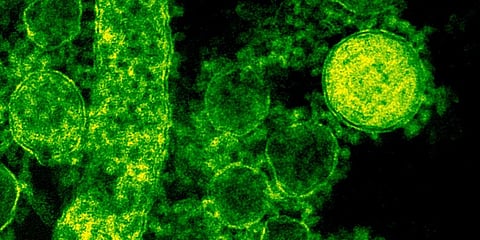

BHUBANESWAR: Amidst a growing concern over environmental pollution, findings of a recent scientific study on the water quality of Kathajodi river at Cuttack has suggested that Odisha’s second largest city might be sitting on a ticking time bomb of antibiotic-resistant bacteria-driven public health crisis.
The study, conducted by researchers at the Centre for Biotechnology under Siksha ‘O’ Anusandhan (SOA) Deemed to be University here, has revealed that the Kathajodi river water flowing along the city contained carbapenem-resistant acinetobacter baumannii (CRAB) and klebsiellapneumoniae (CRKP) that have been designated as critical priority pathogen by the World Health Organisation (WHO), which calls for urgent action by the authorities to ensure public safety.
These superbugs exhibited resistance to an extensive range of antibiotics including 3rd and 4th group of cephalosporin and even the last resort antibiotic carbapenems. Most of them carried virulence factors which spoke about the intensity of the pathogenicity. Classified as extensive drug-resistant (XDR) bacteria, they can cause serious diseases from pneumonia to bloodstream infections with fatal consequences.
The study has been published in Letters in Applied Microbiology journal of Oxford University Press.
A team led by Prof E Subudhi and research scholar Saubhagini Sahoo collected water samples from five different sites both upstream and downstream of the river for scrutiny. They found an alarmingly high concentration of both pathogens across water samples.
The findings have a grave foreboding for public health as a significant chunk of the people of Cuttack city and its periphery use the river water, not to mention animals. The XDR bacteria can not only cause serious harm to the person acquiring it but also can share the gene with other normal pathogens to make them antibiotic-resistant.
The study reported that a major contributing factor for the situation is release of untreated biomedical waste into the river. The city, a major healthcare centre, has several major specialised hospitals besides 229 registered and more than 300 unregistered nursing homes, clinics and diagnostic centers which generate a huge quantity of biomedical waste. The major discharge point of the city is the culmination of all household waste, hospital sewage, industrial, agricultural and slaughterhouse waste generated daily, the study said.
The city generates, on an average, 65.44 MLD of wastewater per day of which 58 MLD is discharged, either treated or untreated, into the Kathajodi river, it said. “Even as there are two sewage treatment plants, they cannot completely rid the water of the contaminants before release. It, is therefore, essential to ensure biomedical waste is handled and disposed of in a scientific manner at source,” Prof Subudhi said. Concerted efforts need to be taken to create awareness about the emerging reports of antibiotic resistance in the river water to avoid the contamination and disease caused by these bacteria, the study stressed.